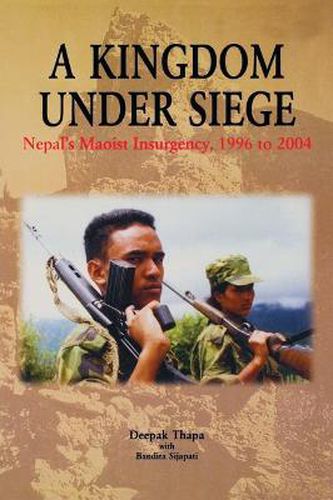Readings Newsletter
Become a Readings Member to make your shopping experience even easier.
Sign in or sign up for free!
You’re not far away from qualifying for FREE standard shipping within Australia
You’ve qualified for FREE standard shipping within Australia
The cart is loading…






A Kingdom Under Siege explains the political and social background to the Maoist insurgency that has embroiled Nepal’s government, political parties, king, police and army in conflict against highly motivated guerrilla fighters since 13 February 1996. By early 2003, the rebels had come to threaten the central institutions of the Nepali state. The authors describe how a combination of state neglect, political instability and the growth of radical left politics led to a build up of tensions. The insurgency’s promise of a more just and equitable society gained favour with many of Nepal’s poor and disadvantaged people. The government’s failure to tackle the rebellion’s causes or to engage the Maoists’ agenda led to thousands of deaths and widespread destruction of infrastructure that peaked in 2001 and 2002. The book concludes that lasting peace depends on building a state that attends equally to of all of Nepal’s diverse population groups.
$9.00 standard shipping within Australia
FREE standard shipping within Australia for orders over $100.00
Express & International shipping calculated at checkout
A Kingdom Under Siege explains the political and social background to the Maoist insurgency that has embroiled Nepal’s government, political parties, king, police and army in conflict against highly motivated guerrilla fighters since 13 February 1996. By early 2003, the rebels had come to threaten the central institutions of the Nepali state. The authors describe how a combination of state neglect, political instability and the growth of radical left politics led to a build up of tensions. The insurgency’s promise of a more just and equitable society gained favour with many of Nepal’s poor and disadvantaged people. The government’s failure to tackle the rebellion’s causes or to engage the Maoists’ agenda led to thousands of deaths and widespread destruction of infrastructure that peaked in 2001 and 2002. The book concludes that lasting peace depends on building a state that attends equally to of all of Nepal’s diverse population groups.